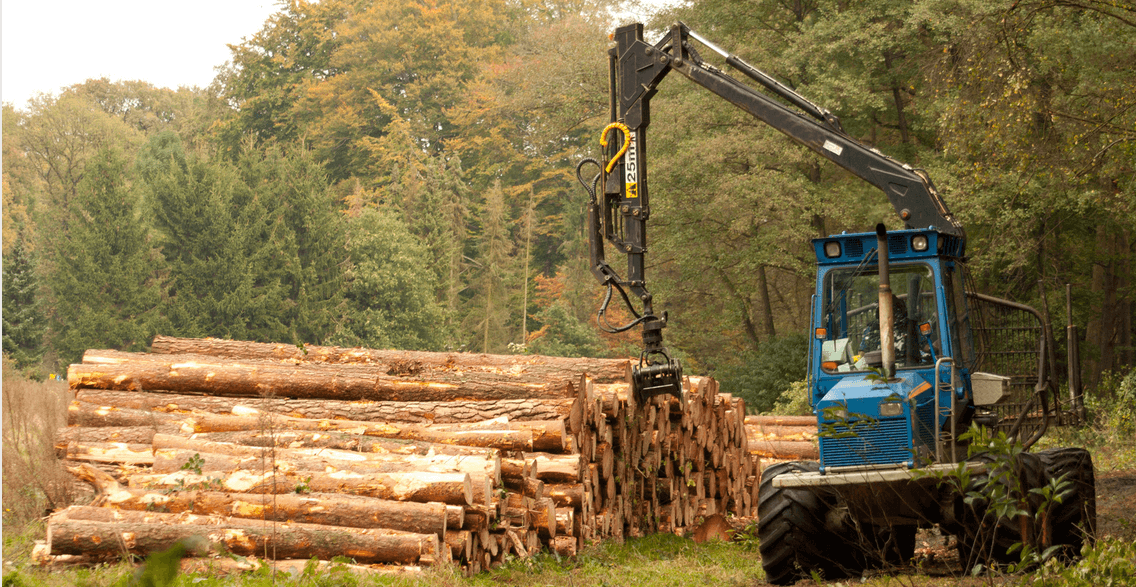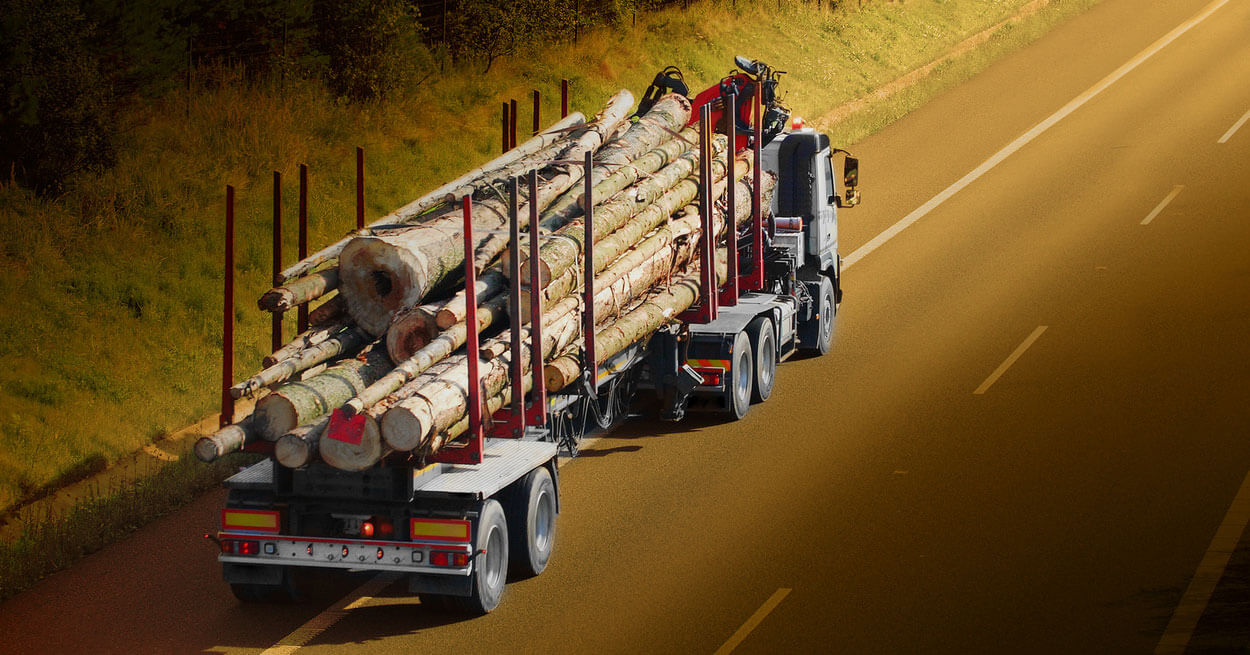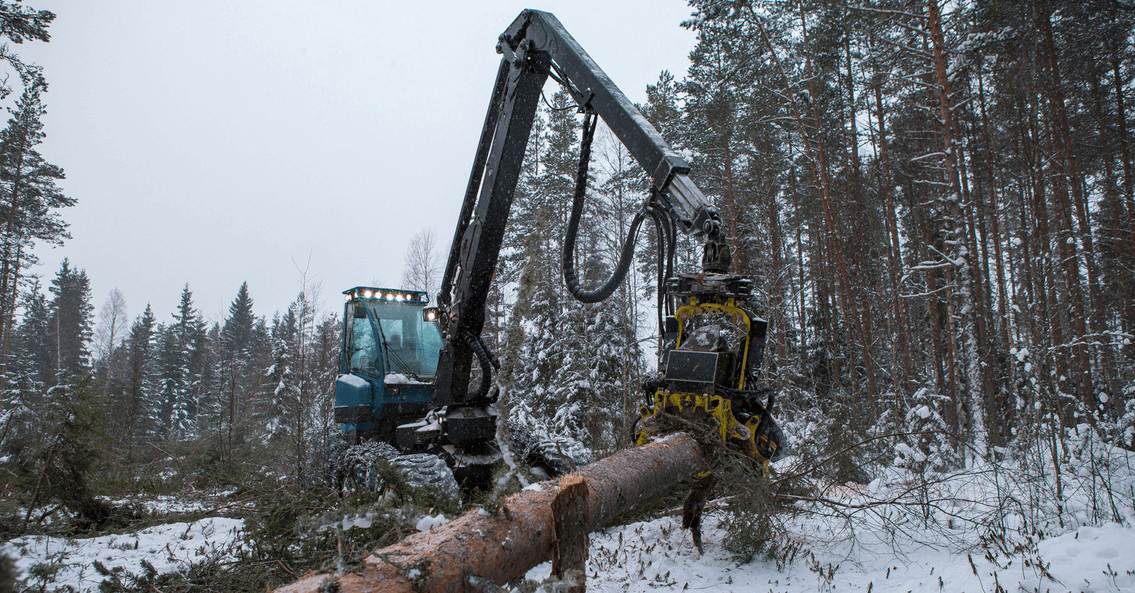In the undulating landscape of modern forestry, the importance of professional timber harvesting and hauling services cannot be overstated. These critical operations lay the groundwork for sustainable forest management, balancing economic gain and environmental preservation. By leveraging professional services, forestry operations can significantly enhance efficiency, safety, and yield. These services bring a nuanced understanding of the complex forest ecosystems, modern equipment, and trained professionals to navigate the intricate timber extraction and transportation process. We will uncover the manifold advantages of employing professional harvesting and hauling services in contemporary forestry practices as we delve into the details. Stay tuned as we show how our company can assist you in this crucial endeavour.
Understanding the Basics of Harvesting and Hauling
Timber harvesting and hauling are integral components of forestry operations that cover cutting down trees (harvesting), extracting logs from the forest, and transporting (hauling) them to a mill or a designated location for further processing.
Professional Harvesting
Regarding professional harvesting, the process is thorough, careful, and considerate of environmental implications. This process begins with carefully selecting mature and ready-for-felling trees. The chosen trees are then cut down using advanced machinery, increasing efficiency and reducing the impact on the surrounding ecosystem.
The professionals involved are well-versed in tree physiology and forest dynamics, which ensures the sustainability of the forest, even after the removal of certain trees. Moreover, precise equipment minimizes waste and optimizes the value gained from each log. Forest owners can ensure optimal yield, safety, and long-term preservation of their valuable resources through professional harvesting.
Hauling in Forestry Operations
Hauling, transporting harvested timber from the forest to its destined location, is as vital as harvesting. Proficient hauling services ensure the logs reach their destination promptly and in prime condition, ready for further processing. They manage the logistical challenges of moving bulky timber loads across varied terrains, battling weather conditions, and complying with transport regulations. By employing professional hauling services, forestry operations can significantly reduce delays and potential damage to the timber, thereby safeguarding their valuable resources. These services are armed with modern machinery and equipment to handle the hauling needs of different types of wood, making this arduous task streamlined and efficient.
These services are indispensable in forest management and the timber industry. They allow for the sustainable extraction of valuable natural resources, aiding in the economic viability of forestry while ensuring the long-term health and vitality of the forests. Furthermore, the timber harvested and hauled is the foundation of numerous industries, from construction and paper production to renewable energy sectors, underlining the essential role of these operations within the broader economic landscape.
Expertise and Experience

Professional harvesting and hauling services come with a wealth of knowledge and experience that can significantly enhance forestry operations. Their expertise in identifying suitable trees for harvesting and the most efficient routes for hauling, coupled with their understanding of the local ecology, greatly benefits forest management.
Professionals in this industry are skilled in using state-of-the-art machinery and equipment, ensuring the job is done efficiently, safely, and with minimal environmental impact. They are well-versed in local forestry laws and regulations, which helps ensure compliance and avoid potential legal issues.
Moreover, their experience enables them to foresee and effectively manage potential challenges during harvesting and hauling. This includes everything from handling unexpected weather conditions to managing the logistical complexities of hauling large timber loads over rugged terrains.
By leveraging their deep knowledge and years of experience, these professionals can carry out the harvesting and hauling processes more cost-effectively and sustainably. This can significantly improve forestry operations’ financial viability while contributing to the long-term preservation of our precious forest ecosystems.
Efficiency and Productivity
The role of efficiency and productivity in professional harvesting and hauling services cannot be overstated. With modern technology and advanced techniques, these operations have seen a surge in productivity, resulting in improved cost-effectiveness across the board.
In terms of harvesting, using advanced machinery such as computer-controlled harvesters brings high precision and speed to the operation. These machines can perform the tasks of felling, delimbing, and bucking at a fraction of the time it would take human workers. This drastically reduces the time spent on each tree and allows for a much larger volume of trees to be processed within the same timeframe, leading to increased productivity.
Similarly, hauling has seen significant improvements through the use of advanced equipment. For example, self-loading trucks enable quick and efficient loading and unloading of logs, reducing downtime and increasing overall productivity. GPS navigation and route planning software also allow for optimizing transport routes, leading to faster delivery times and less fuel consumption.
The increase in efficiency and productivity brought about by these advancements leads to significant cost savings. Reduced labour hours, lower fuel costs, quicker turnaround times, and the ability to manage larger volumes make the operations more cost-effective. Moreover, the increased efficiency also has environmental benefits, as fewer resources are expended per output unit.
Using advanced techniques and equipment in professional harvesting and hauling services increases efficiency and productivity, resulting in increased cost-effectiveness. By leveraging these advancements, forestry operations can achieve their economic goals while contributing to the sustainable management of our forest resources.
Compliance with Regulations and Standards
The regulatory landscape in forestry operations is extensive, encompassing environmental, safety, and industry-specific regulations. These standards aim to promote sustainable practices, ensure worker safety, and maintain the quality and integrity of the extracted resources. Professional harvesting and hauling services are pivotal in meeting these regulations and standards.
Professionals in this field thoroughly understand the local, regional, and international rules governing forestry operations. They stay abreast of changing regulations and adjust their procedures to maintain compliance. For example, they adhere to environmental regulations that minimize the impact on wildlife habitats, maintain water quality, and reduce soil erosion.
Safety regulations are another crucial aspect of these operations. Using potentially dangerous machinery and the inherent risks in handling large timber loads necessitate rigorous safety protocols. Professional services prioritize safety by conducting regular training, implementing strict operating procedures, and investing in safety equipment and protective gear.
Finally, industry standards relating to the quality and size of the harvested timber, among others, are upheld. These standards ensure the harvested wood meets the requirements of various industries, from construction to paper production. Professional harvesting and hauling services contribute to forestry operations’ sustainability, safety, and success by ensuring compliance with these diverse regulations and standards.
Sustainable and Responsible Practices
Sustainability is a core value in modern forestry, and professional harvesting and hauling services are crucial in promoting and implementing sustainable practices. They are mindful of the delicate balance between economic viability and environmental responsibility, simultaneously delivering on their operational goals while minimizing negative environmental impacts.
For example, professionals in these services often employ selective harvesting, where only certain trees are cut down while others are left to continue growing. This method ensures the sustainability of the forest, promotes biodiversity and facilitates the forest’s natural regeneration.
Furthermore, during hauling operations, proper road construction and maintenance are crucial for minimizing soil erosion and protecting water quality. These professionals use techniques such as strategic road placement to avoid sensitive areas and implement best management practices for road construction to limit soil disruption.
In addition, they use advanced machinery and techniques to increase efficiency and reduce waste. For instance, advanced harvesters can optimize the use of each tree, ensuring that as much wood as possible is used and less is left as waste in the forest. Similarly, efficient transportation practices, such as optimizing load sizes and planning efficient routes, can significantly reduce fuel consumption and emissions.
By integrating these and other sustainable practices into their operations, professional harvesting and hauling services contribute significantly to the overall sustainability of forestry operations. Their expertise and commitment to sustainable practices ensure that our forests can continue to provide their essential services to humanity while preserving biodiversity and maintaining the health of our planet.
Safety and Risk Management
Safety is a cornerstone of forestry operations, ensuring the well-being of both workers and the environment. Professional harvesting and hauling services are responsible for creating and maintaining a safe working environment and mitigating the inherent risks associated with forestry operations.
Forestry professionals employ a comprehensive approach to risk management that includes regular safety training, strict adherence to safety protocols, and the use of protective equipment. Workers are trained in correctly handling and operating machinery, appropriately responding to emergencies and the importance of personal protective gear. This fosters a safety-first culture where everyone understands their role in maintaining a safe workplace.
Risk assessments play a crucial role in this process. By continuously identifying and evaluating potential hazards, professionals can implement measures to prevent accidents before they occur. This might include regular maintenance checks on machinery, ensuring the physical fitness of workers, and monitoring the weather conditions and terrain of the worksite.
Environmental safety is also integral to responsible forestry. Professionals adhere to regulations that protect the environment, employing techniques aimed at minimizing their impact. For example, they use strategic road placement during hauling operations to avoid sensitive areas and reduce soil erosion, and they employ selective harvesting to protect biodiversity.
Safety and risk management are indispensable components of professional forestry operations. By prioritizing safety, these professionals not only protect their workers and the environment but also enhance the efficiency and effectiveness of their operations.
Economic Benefits
Professional harvesting and hauling services are pivotal in ensuring sustainable and safe forestry operations and hold significant economic benefits. By providing efficient, reliable, and compliant services, these professionals contribute to better economic outcomes for businesses, local communities, and the broader economy.
Professional harvesting and hauling services play a key role in driving economic benefits:
- Resource Optimization: Advanced machinery and techniques result in more efficient harvesting and hauling, reducing waste and increasing yield from each tree. This improves profitability for forestry businesses, leading to higher revenue and potentially more investment in the sector.
- Local Economy Impact: Forestry operations often occur in rural or remote areas. The businesses involved can provide much-needed jobs in these communities. These jobs stimulate local economies by increasing spending power and triggering growth in other local services and industries.
- Supply Chain Support: These services are integral to the supply chain for numerous industries, from construction and furniture manufacturing to paper production. By ensuring the smooth operation of this supply chain, they indirectly contribute to job creation and economic activity in these sectors.
Their efficient operations lead to better business outcomes, support local economies, and underpin the operations of multiple industries, contributing to job creation and economic growth.
Overview
Professional harvesting and hauling services are critical in sustainable forestry operations, safety and risk management, and economic growth.
- Sustainability: These professionals minimize waste and environmental impact by employing methods such as selective harvesting and efficient transportation practices. Their commitment to sustainability contributes to the health of our forests and planet.
- Safety and Risk Management: Through regular training, adherence to safety protocols, and continuous risk assessments, these services prioritize the safety of workers and the environment. Their emphasis on safety enhances the overall efficiency of their operations.
- Economic Impact: With resource optimization and support to local economies, professional harvesting and hauling services drive economic benefits. Their operations are integral to several industries, contributing to job creation and economic growth.
Conclusion
Professional harvesting and hauling services are vital to sustainable and efficient forestry operations. They uphold environmental responsibility through sustainable practices such as selective harvesting and strategic road placement, ensuring the longevity of our forests and the protection of biodiversity.
The focus on safety and risk management safeguards the welfare of workers and the environment. Implementing regular safety training, adherence to protocols, and risk assessments create a secure workplace while minimizing environmental impact.
Economically, professional services are fundamental drivers of growth. They optimize resource usage, reducing waste and enhancing profitability. The economic benefits extend beyond the forestry businesses, invigorating local economies through job creation and supporting the supply chain of various industries.
Choosing professional harvesting and hauling services is a wise business decision and a commitment to sustainable, safe, and economically beneficial forestry operations. Their role is paramount in balancing operational efficiency, environmental preservation, and economic viability, ultimately pointing towards a sustainable future for the forestry sector.
San Forestry is committed to providing professional and reliable log-hauling services in Alberta and Western Canada. We invite you to learn more about our services and how they can meet your forestry needs. Please visit our contact page for more information or inquiries.




